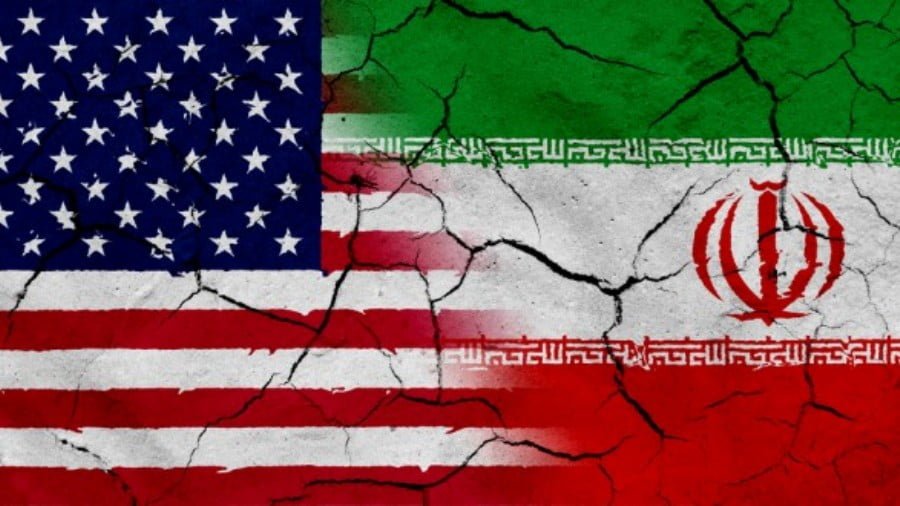Zugzwang*
Europe’s future looks bleak. It is now pressed by its own imposition of sanctions, and the resultant spike in commodity prices. The EU is lumbering around in a daze.
Western self-destruction – a puzzle defying any unique causal explanation – continues. The examples where policy is pursued in apparent indifference to anything resembling rigorous reflection, has become so extreme as to provoke a former British military chief (and former head of NATO forces in Afghanistan), Lord Richards, to huff that the relationship between strategy and any synchronisation of ends has become hopelessly broken in the West.
The West pursues a “let’s see how it goes” ‘strategy’, or in other words, no real strategy at all, Richards contends. Many would say that a cult of unrelenting, untethered, positive spin, has asphyxiated mainstream critical faculties. How is it that the West, awash with ‘think-tanks’, invariably gets it so wrong? Why is it that facile memes and illusions, posing as geo-politics, get little or no challenge? Compliance to official and mainstream narratives is all. It is baffling to observe this becoming routine, without apparent cognizance of the risks which this entails.
The key epicentre to today’s spiking geo-political instability is the state of the western economy: So complacent have the authorities been – that inflation would never ruffle the waters of the reserve-currency-based U.S. economy – that cyclical recession was assumed to have been ‘eradicated’; it would never sully the consumer (electoral) sphere again, thanks to a money printing ‘vaccine’; and anyway, ballooning debt ‘does not matter’.
This facile view assumed that ‘reserve status’ in, and of, itself eradicated inflation – whereas to the outside world, it was always the petrodollar system compelling the entire world to purchase dollars to finance their needs; it was the flood of cheap Chinese consumer goods; and it was the cheap energy sources made available to western industry by Russia and Gulf States, that kept inflation at bay.
Western government spending ‘shot the moon’ in the wake of 2008 crisis, and simply exploded during Covid lockdowns, and then – in an episode of impaired geo-strategic vision – those cheap energy and other vital resources underpinning economic productivity were heedlessly sanctioned, and even threatened with a ban.
Rose-tinted wearers of Energy Transition spectacles simply refused to acknowledge that an EROI (energy return on energy invested – to extract that given energy) of greater than a multiple of 7 is required for modern society to function.
We now observe the consequences: Rampant inflation, and the West scrambling around the world looking for cheap alternatives that won’t ‘break the bank’. Alas, they are scant. What is the geo-political implication? In a word, extreme systemic fragility. This has already wholly upended U.S. domestic politics. Yet, neither interest rate hikes, nor demand destruction (by crashing asset values) will cure structural inflation. Western economists remain obsessed with monetary effects on demand, at the expense of acknowledging the consequences of taking a trade-war hammer to a complex network system.
The social pain will be immense. Already many Americans are having to buy their food on near maxed-out credit cards, and this will only worsen. Yet the dilemma is deeper. The ‘Anglo’ economic model of Adam Smith and Maynard Keynes – the system of debt-fuelled consumption, over-layered with a hyper-financialised superstructure – has gutted the real economies. Consumption trumps making and supplying things. Structurally, less and less well-paid employment becomes available, as the real economy makes less, displaced by an ephemeral bubble of marketing.
But, what to do with the 20% of the population no longer economically necessary in this attenuated economy?
Was this structural flaw not eminently foreseeable? It should have been; the 2008 financial crisis, which almost crashed the system, was a wake-up call. Short-sightedness again prevailed; the money printing presses whirred.
And Europe, thanks to its joyously-embraced, but self-destructive, sanctioning of Russian energy and resources, is creating a similar (or worse) inflationary disaster. It is now only too evident that the EU did not do any due diligence before sanctioning Russia. Potential blowback simply was waved aside in a haze of Net Zero and ideological bluster. Similarly, Europe threw itself into the military conflict in Ukraine, again without a care to define its strategic aims or the means to an end – carried along on a Panglossian wave of enthusiasm for the Ukrainian ‘cause’.
Inflation here in Europe is well into double digits. Yet, without a blush, Lagarde of the ECB states: “We have inflation under control”. We will still grow in 2022, and growth will accelerate in 2023 and 2024. Strategy? Synchronised ends? Hers were just talking points severed from all reality.
This ECB event however, has a major geo-political significance. With the Fed raising interest rates in the U.S., the ECB is being exposed as having no credible tools to deal with the spiralling up, and away of European sovereign debt rates, from any semblance of convergence. A European sovereign debt crisis has begun; worse, some sovereign debt likely will become bid-less and pariah.
Just to be clear, the accelerating inflationary crisis in Europe undermines the political positions of nearly every major politician across the euro-zone, as they will encounter real popular anger; as inflation eats away at the middle class; and high energy prices gut business profits.
There is still more to this ECB impotence – a deeper significance: The Fed is raising interest rates – well-aware that it lags ‘far behind the curve’ – to have significant impact on inflation (during the Volcker era, Fed Funds rate touched 20%).
The Fed hikes beg the question whether the former has other aims in mind, beyond U.S. inflation: Would Powell be unhappy to see the ECB and the Eurozone sinking in crisis? Possibly not. The (offshore European) Eurodollar market antics and ECB rate policies effectively have been tying Powell’s hands.
Now the Fed is acting independently – and in the American interest firstly – and the ECB is in trouble. It will have to follow suit and raise rates. The Fed is owned by the big NY commercial banks. These latter know that the Davos-Brussels ‘set’ aims to move, when it can, to a single European Central Bank digital currency – a move that would represent a development threatening the very business model of the U.S. Big Banks. (Perhaps it is no coincidence therefore, that digital currencies are widely collapsing at the same moment).
Michael Every of Robobankwrites: “Were the U.S. to lose the power of the dollar as global collateral – to commodities as collateral – then its’ [the American] economy and markets will soon follow [with power similarly draining away]”.
“Maybe that logic doesn’t hold, but a hawkish Fed today suggests it does”. Powell saying in March that ‘it is possible to have more than one reserve currency’ is surely a nod towards this trend, with Russia’s linking of the rouble to a goldgram, and energy to the rouble.
The U.S. Big Banks therefore, with Powell as spokesman, are doxing ‘Davos’, and letting Lagarde swing in the wind. They are putting American financial interests first. This is a huge shift away from the era of the Plaza Accords.
The point? The point is that the EU Euro-zone was – at German insistence – constructed as an appendage of the dollar. Now the Fed is focussed on halting the slide towards commodities as global collateral. And Europe, with its ‘Davos-ian’ predilections, is being thrown under the bus. The leveraged dollars in the Eurodollar system are ‘heading home’.
Is there a future for the Euro-zone, given its known incapacity for reform?
Notably, all these tectonic shifts, derive at their core, from the Ukraine saga – and the West’s embrace of full-spectrum financial war on Russia. Thus, the epicentre of western financial fragility converges with the Ukraine conflict epicentre, now unfolding as a slow burn political debacle for both Europe and the U.S. With inflationary fires in their economies already lit, the latter could not have chosen a worse moment to experiment with boycotting everything Russian.
The geo-political significance of the convergence of the financial with the military lies with the progressive ‘walk-back’ of western (supposedly strategic) aims.
First, it was to impose a humiliating military defeat on Putin. Then, to militarily weaken Russia, such that it could never again repeat its ‘special operation’ elsewhere in Europe. Then, it became limiting Russian military success to the Donbas, then to Kherson and Zaporizhzhia, too. Then, simply it became a narrative of continuing the attrition against Russian forces for the coming months, to inflict hurt on Russia.
Recently, it has been that the Ukrainian forces must continue the fight in order to have some say in any peace ‘deal’, and perhaps to ‘save’ Odessa, too. Today, it is said that only Kiev can make the painful decision on what sovereign loss of territory they can ‘stomach’ – for peace’s sake.
It is ‘Game over’ really. It is all blame-game now. Russia will impose its own terms on Ukraine through placing military facts on the ground.
The strategic importance of this has yet to sink-in fully: It was, of course, the western leaders who made a big play of claiming that, absent the painful humiliation and military defeat of Putin, the liberal rules-based order was finished.
Of course, to demonstrate to the world that the West has not entirely lost its spunk, Team Biden continues to poke China in the eye over Taiwan. At the recent Shangri-la security conference, Zelensky (no doubt speaking to a western prompt) insisted that Asian countries would ‘lose’, were they to wait upon the crisis unfolding, to act on Taiwan’s behalf. To ‘win’, the international community must “act in a pre-emptive way – not the one that comes after the war has started”, Zelensky said.
The Chinese understandably were furious and a testy meeting between Secretary Austin and General Wei ensued. But what exactly is the strategic aim in provoking China so relentlessly – what are the wider tactics implicit in this strategy?
Then, there is Iran. After eight rounds of negotiations, it seems that the U.S. quietly is walking away from a JCPOA deal, a move that suggests that U.S. is ready to come to terms with Iran as a ‘threshold nuclear state’ – a prospect deemed not so strikingly threatening or immediate, as to warrant the expenditure of U.S. capital, or the diversion of the White House’s limited attention ‘bandwidth’ from more pressing issues.
But then everything quickly changed: The IAEA censured Iran, with the latter then disconnecting 27 IAEA surveillance cameras in riposte. Israel has re-launched its campaign of assassinating Iranian scientists, and recently has crossed red lines in its bombing of Damascus airport. Israel plainly is pushing hard for the West to force Iran into a corner.
But – “We’re drifting”, former U.S. envoy Aaron David Miller has said; “Hoping that Iran won’t push the nuclear envelope; Israel won’t do something really big; and Iran and its proxies don’t kill a lot of Americans in Iraq or elsewhere”. Again, Miller says it, but it might have been Lord Richards’ “That’s no strategy”.
Yet, the Ukraine war does have strategic import for the U.S. and Israel – even if Millar does not yet see it. For, if the new Ukraine ‘doctrine’ is that Kiev should make painful concessions of territory for peace, then what is appropriate for the Ukrainian goose, must be so for the Israeli ‘gander’.
Of course, the strategic ripples emanating out from the Ukraine epicentre spread far wider – to the Global South, to the Indian subcontinent, and beyond.
Yet is this analysis, so far, not myopic, not deficient too? Is there not a missing piece to the strategic puzzle? Running throughout the foregoing has been the theme of western governmental disdain to engage in due diligence, combined with a complex cultural fixation with the cohesion and utter singularity of its discourse – the latter not permitting any ‘otherness’ to penetrate its’ key narratives.
Is the same true of Russia and China? No, it is not.
So, we turn to Russia’s strategic objectives: The redefinition of the global security architecture, and the push-back of NATO behind the lines of 1997. But what might be its means to this ambitious end?
Well, let’s turn the telescope round-about, and look through from the other end. The West clearly has been inflicted with severe myopia in respect to its own internal contradictions and flaws, preferring to focus only on those of others.
We know however, that both China and Russia have studied the western financial and economic system and identified its structural contradictions. They have said so. They have lain them out clearly (from the 19th century onwards). An analogy is often made to judo in respect to President Putin’s ability to use an opponents’ own greater physical strength against him, so as to topple him.
Is it not likely that Russia and China similarly have perceived the West’s undoubted economic muscles, but also have perceived the likelihood that they might over-extend their supposed superior strength; and that that overextension might be the means to ‘throw him’? Maybe it was just a matter of waiting for these economic contradictions to mature into disorder?
Europe’s future looks bleak. It is now pressed by its own imposition of sanctions, and the resultant spike in commodity prices. The EU furthermore is muscle-bound by its own institutional rigidities that are so grave that its large frame can neither move forward or backwards. It is lumbering around in a daze.
How can Europe save itself? Strategically break with Washington, and do a deal with Russia? Or else find itself ‘thrown’ by its own sanctions’ ‘muscularity’? Give it time. Eventually it will become understood as the solution.
*A chess term, where a player must move, but every possible move only worsens his situation







